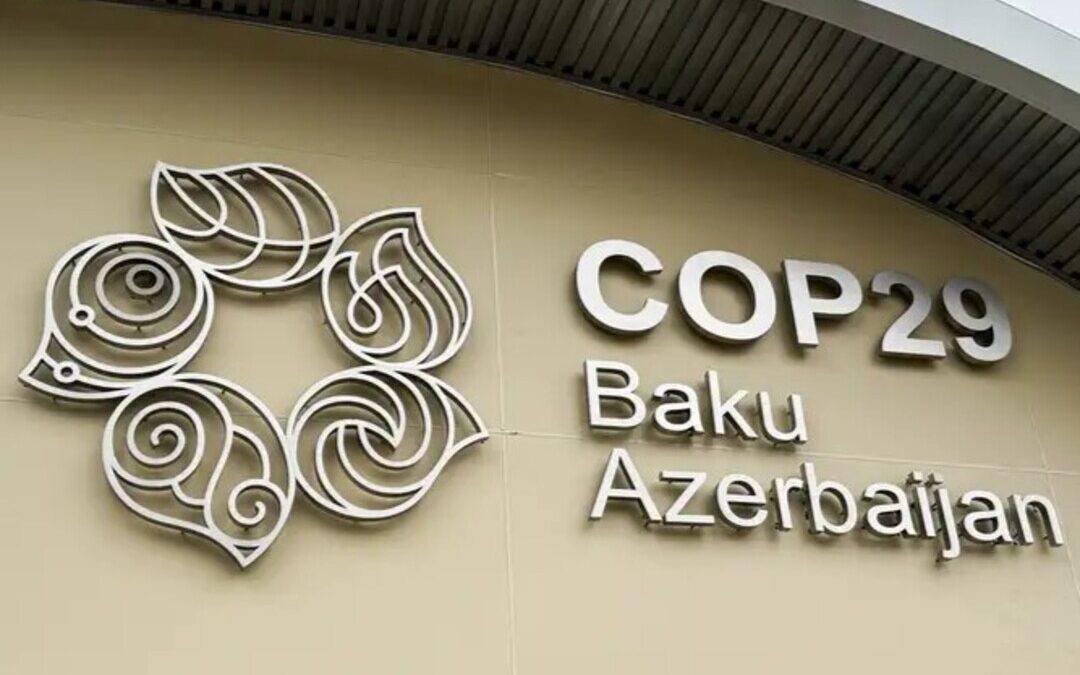World Rallies for Global Climate Shift as COP28 Spurs Progress across Sectors
The groundwork laid at COP28 last year at Dubai has ignited transformative changes that will continue to unfold as COP29 takes shape.
The UN Climate Change Conference in Baku, or COP29, will spark transformative changes as global leaders unite to drive this week’s ambitious net-zero, climate resilience and ecosystem restoration goals.
According to the UN Framework Convention on Climate Change 2024 Yearbook released on Sunday, COP28 in Dubai set the stage for a global climate shift last year. But this year’s summit will foster a sweeping effort among international actors to lead the charge on climate goals, steering the global economy toward a cleaner, more sustainable future.
“With significant progress spanning energy, finance, industry and nature, the groundwork laid at COP28 has ignited transformative changes that will continue to unfold as COP29 approaches,” the yearbook said.
A pivotal achievement at COP28 was the comprehensive input from diverse groups — including civil society, cities and businesses — on the Global Stocktake or GST, a critical review process that evaluates progress under the Paris Agreement.
Together, these contributions have influenced Nationally Determined Contributions and adaptation strategies, demonstrating how climate plans can address the needs of vulnerable populations while fostering sustainable development.
One of the primary vehicles for this multi-stakeholder approach is the enhanced Marrakech Partnership, now featuring a Leadership Forum, coordination meetings, and specialized working groups.
Supported by the High-Level Champions or HLCs, these initiatives seek to align climate efforts across sectors and strengthen the structures needed to achieve global climate objectives. These measures will launch in 2025, spearheaded by the secretariat and the Climate Champions Team, actively coordinating with partners worldwide.
A Decade of Tracking Climate Action
The Global Climate Action Portal, an online climate-tracking platform, has transformed over the past decade into an indispensable tool for transparency and accountability.
Tracking over 39,000 actors and 175 cooperative climate initiatives, GCAP now provides a detailed record of efforts across regions and industries driven by a commitment to transparency.
With added accountability frameworks and integration of the Net Zero Data Public Utility, GCAP aims to become the world’s most comprehensive repository for climate data.
Race to Zero Campaign Gains Momentum
The Race to Zero initiative saw notable growth this year, rallying over 15,500 members worldwide committed to achieving net zero emissions by 2030.
This coalition spans businesses, financial institutions, cities, educational entities, and even healthcare organizations, adding two key partners: the Net Zero Export Credit Agencies Alliance, a group managing $120 billion in trade, and the United Kingdom’s National Parks.
Emerging markets have seen increased participation, with new programs in countries like Indonesia and Ghana expanding the campaign’s reach across multiple sectors, from industry to water utilities.
Sector-Specific Advances Drive Change
COP28 saw sectoral progress, particularly in renewable energy, industry, and transportation. In 2023 alone, renewable capacity expanded by 473 gigawatts, with solar power leading the charge.
Major industry players are investing heavily, as seen with the Utilities for Net Zero Alliance’s pledge of $116 billion per year toward renewables.
The industry sector has also made strides, as low-carbon steel now represents 1-2 percent of global output, and the cement sector has lowered its carbon intensity by 8 percent since 2020.
While sustainable aviation fuel production doubled in the past year, representing 0.53 percent of global aviation fuel, the maritime sector lags in adopting zero-emission alternatives.
In the buildings sector, 29 countries have committed to advancing green construction codes, laying the foundation for a sustainable built environment. Government support will be critical to continue these advancements, helping companies reduce costs and overcome market barriers.
Finance, Nature and Equity at the Forefront
The role of finance in climate action is increasingly central, with programs like the Race to Resilience and the Sharm el-Sheikh Adaptation Agenda directing funds to vulnerable communities in developing regions. Regional Climate Platforms, meanwhile, have facilitated financing for emerging markets, promoting equitable access to climate solutions.
Nature-based solutions, or NbS, have also gained traction. Efforts to halt deforestation, restore ecosystems, and improve food systems have received robust backing from governments, Indigenous groups, and financial institutions. Through initiatives such as the Mangrove and Coral Breakthroughs, these stakeholders are making a case for the critical role of nature in emissions reduction, community protection, and climate resilience.
Inclusive Climate Action Takes Root
A focus on inclusivity has bolstered climate progress in 2024. Through partnerships with initiatives like the Climate Proofing SME Campaign, small- and medium-sized enterprises have emerged as crucial contributors, representing 90 percent of global businesses. Cities and regions are also stepping up, participating in local climate stocktakes and joining the Coalition for High Ambition Multilevel Partnerships for Climate Action (CHAMP).
COP28 also made strides in youth engagement, creating roles like the Youth Climate Champion to ensure younger voices shape policy.
The inclusion of Indigenous Peoples in COP28 discussions marked a historic step, with enhanced access to climate finance and improved representation. Gender-responsive action, too, received a boost, with 83 governments endorsing a partnership for just transitions that reflect gender-based needs.
The Impact Makers campaign, launched this year, celebrates grassroots solutions and local climate leaders, further advancing the shared goal of a climate-resilient future.
As the world prepares for COP29, the collaborative, inclusive progress achieved in 2024 underscores the power of multi-stakeholder action. While challenges persist, particularly around equitable finance, this momentum sets a strong foundation for reaching the climate goals of 2030 and beyond.

